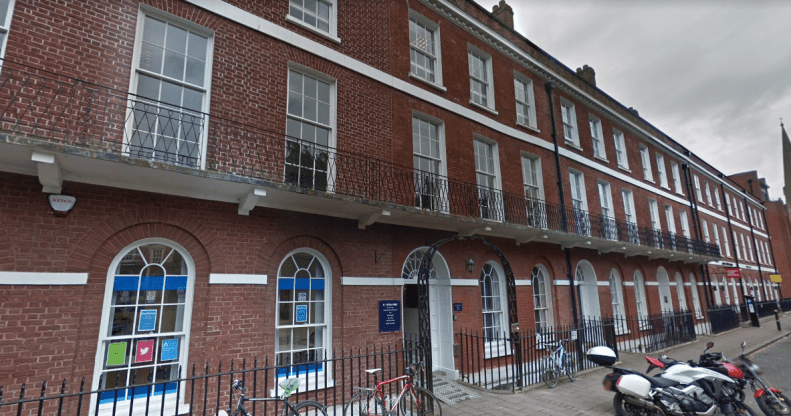Trans patients are being forced to wait up to 193 weeks for vital healthcare. The NHS target is 18 weeks

Exeter’s Gender Identity Clinic, The Laurels, has a 46-week waiting list for an appointment. (Google Maps)
Anger is growing after it was revealed that trans and non-binary patients in the UK’s south west are waiting more than 193 weeks to see an NHS specialist – more than 10 times the NHS legal guideline of 18 weeks.
Patients referred to the West of England Gender Identity Service in Exeter, known as The Laurels, now wait for 46 months on average – almost four years – before their first appointment with a specialist gender doctor.
The Laurels is one of seven Gender Identity Clinics (GIC) in the UK that provides healthcare, including counselling, hormone and speech therapy, and gender confirmation surgery, for an estimated population of half a million trans people.
Local LGBT+ group Yeovil Pride branded this situation “shocking” and called for the government to “address the inequalities facing trans and non-binary people” when it comes to accessing healthcare in the UK.
“In 2020, it feels like a good moment to stop and reflect on how far the fight for equal rights for LGBT+ people has come. But in doing so we must also highlight the distance we still have to go,” the chair of Yeovil Pride, JK Doran, wrote in an open letter to local Tory MP Marcus Fysh.
The letter continues: “Addressing the inequalities facing trans and non-binary people must be a priority for this government to address the lack of support, end the scapegoating of trans and non-binary people by the anti-trans lobby and providing individuals with access to medical services.
“I therefore ask that you pledge your support, as part of the reforms to the GRA, the self-determination procedure and oppose any ‘new protections to safeguard female-only spaces’ that rather than protect cis women, would only act to dehumanise trans women further.”
Yeovil Pride added that they were aware of a number of trans and non-binary people locally who had been unable to access their hormone therapy during the pandemic.
Fysh responded by pointing out that other healthcare had also been disrupted by the pandemic and that he did not believe trans and non-binary people were being discriminated against, but that he would be happy to meet with Yeovil Pride to discuss its concerns.
Sue Smith, Devon Partnership NHS Trust chief operating officer and director of workforce, said that the NHS knows “how much distress can be caused by lengthy waits for assessment and treatment”.
“We are doing everything we can to improve the situation, which is mirrored in gender services right across the country,” said Smith.
“We are sorry that our Gender Identity Service is not able to see more people more quickly – and that some people are experiencing very long waits.
“In the past few years, referral rates have risen by 500 per cent and this has placed unprecedented levels of pressure on the service.
“We are pleased to say that we are now working hard with our commissioners to address these issues and to make headway in reducing waiting lists and times, but the challenges are significant.”
Smith added that the The Laurels recently hired two new doctors to try to speed up the waiting list.
Nationally, more than 13,500 trans and non-binary people in the UK are currently on a waiting list for a GIC. Waiting times vary by location but nowhere is it possible for a trans patient to see a gender specialist within the NHS legal guideline of 18 weeks.
The national average waiting time for a first appointment at a GIC after being referred there by a GP is reportedly 18 months, with many trans people waiting three years or more for that crucial first appointment.
Last year, a charity warned that the long NHS waiting lists put trans and non-binary people at risk of self-harm and suicide.

